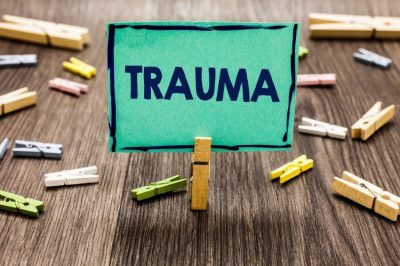Trauma

What is Trauma?
This is a term that can refer to both physical and psychological trauma. In its' general sense for mental health, trauma refers to a psychological and emotional response to a distressing or disturbing event that overwhelms an individual's ability to cope. It does not mean that the person is 'weak' in any shape or form - imagine criticising someone's leg for breaking, or skin for tearing. Five people can witness the same event but all experience it differently, due to neurodiversity and sensory input, how closely one relates to elements of the incident (consciously or not), and coping mechanisms before, during and after the event. It is unfair, and yet entirely normal, to compare oneself to another and question 'but why me and not them'? This then can lead to self-doubt, blame and shame, as though there is a deficit in the self. This only further leads to more symptoms. This can most certainly be supported with the space and time to explore the biases our human mind can tangle itself in.
Trauma can result from a wide range of experiences, including but not limited to:
- Physical Trauma: This includes accidents, injuries, or physical violence that can lead to both physical and psychological trauma.
- Emotional Trauma: This type of trauma often results from emotionally distressing experiences such as the death of a loved one, a breakup, or witnessing a traumatic event.
- Psychological Trauma: Psychological trauma can result from various events, including childhood abuse, neglect, war, or any situation that causes extreme fear, helplessness, or horror.
- Sexual Trauma: This type of trauma involves unwanted sexual experiences, including assault, harassment, or rape.
- Developmental Trauma: Trauma experienced during critical periods of development in childhood can have long-lasting effects on a person's emotional and psychological well-being.
- Complex Trauma: Complex trauma is the result of prolonged exposure to multiple traumatic events, often within a relational context, such as ongoing abuse or neglect.
Trauma can have profound and lasting effects on an individual's mental and emotional well-being. These effects can manifest in various ways, including symptoms of post-traumatic stress disorder (PTSD), anxiety, depression, dissociation, and other emotional and psychological difficulties.
It's important to note that trauma is a complex and individualized experience. What is traumatic for one person may not be traumatic for another. Additionally, people may respond to trauma differently, and the effects can vary widely in terms of severity and duration. Treatment and support from mental health professionals are often crucial for individuals who have experienced trauma to help them cope, heal, and work towards recovery.

